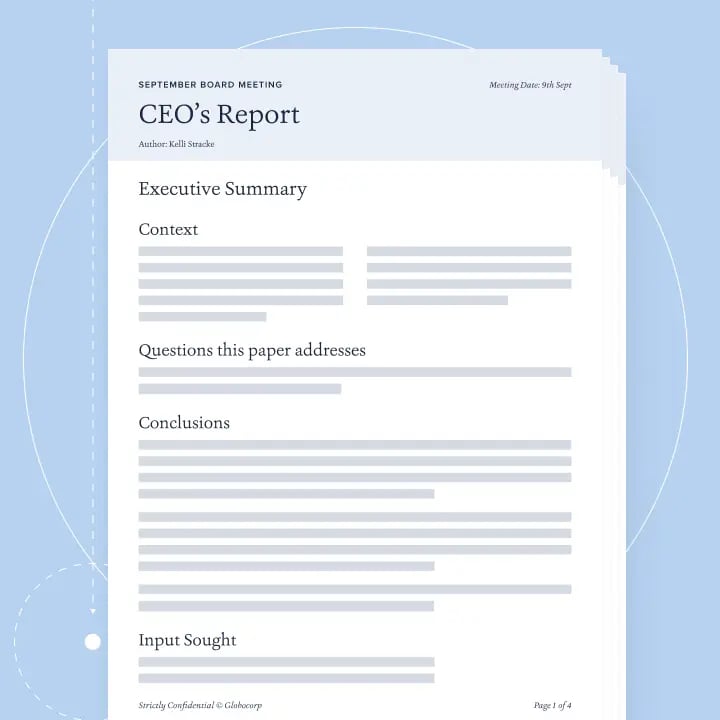Professor Andrew Kakabadse is a professor of governance and leadership at Henley Business School, an expert on board performance and governance, and the chair of Envisia Business School. Ranked as one of the world’s most influential management gurus by the Harvard Business Review, Andrew has consulted for numerous governments and multinationals, published 45 books — including several bestsellers — and over 250 scholarly articles, and is currently embarked on a major world study of boardroom effectiveness.
What has your research identified as the biggest challenge facing directors today?
There is a rising feeling of alienation in the boardroom caused by the impossible, contradictory demands being made of board members.
“The problems encountered by board members don’t stem from the kind of leaders they are, or their leadership style, but from the governance system itself.”
After conducting 19 global studies, including well over 20,000 organisations in 57 countries, what we found is that the problems encountered by board members don’t stem from the kind of leaders they are, or their leadership style, but from the governance system itself.
What’s responsible for this alienation at board level?
Many board members are torn between what they are doing and what they believe in, and there is a sense of frustration that they are being asked to square the circle.
On one side of the equation, board members have fiduciary duties. Most directors and CEOs are decent people — they’re often deeply involved with charities and they share the same desire for a better society as we all do. But, as one chair told me, “It’s not the decisions I’m making that matter, it’s the one I’ve already made.” By becoming a board member, directors become legally obligated to work for shareholders and, from that point on, their hands are tied.
“As one chair told me, ‘It’s not the decisions I’m making that matter, it’s the one I’ve already made.’ By becoming a board member, directors become legally obligated to work for shareholders and, from that point on, their hands are tied.”
Meanwhile, on the other side, as governments increasingly transfer social welfare responsibilities — from pensions to healthcare — onto the private sector, society is demanding more of boards. And directors suddenly face impossible dilemmas: Should a church invest in a weapons manufacturer if it’s the only way to hit pension targets, or does it let down the pensioners who rely on their cheques to survive? Should a board member thoroughly investigate allegations of bribery in a country where bribes are the norm, and exit that country if need be, or should he or she only do what is legally required and enable the thousands of people working there to keep a decent-paying job and lift themselves out of poverty?
You might say that this is exactly the kind of dilemma that modern governance is supposed to address. And to a certain extent, it does; we’re in a much better place today than 20 years ago, when being on a board was more a status symbol than an obligation to have a serious look at an organisation. But, for too many today, “governance” means little more than “compliance”, and this compounds the problem: comply and tick the right boxes and you’re untouchable, but dig deeper and focus on your role as a steward and you might very well go to prison. We’re punishing the boards that ask the tough questions — when that should be their raison d’être.

A thinking and writing platform that helps you to write brilliantly clever and beautiful reports that surface breakthrough insights and spur your business to action.
Find out moreHow can boards ever act as good stewards, then?
The introduction of the stewardship code created some positive momentum but, unfortunately, it has mostly turned into another compliance code.
So, the first step is to recognise that the problem is systemic. That’s not to absolve board members of their individual responsibility, but it’s a misconception to say that our current problems are caused by evil or greedy people in positions of power. Rather, these problems are for the most part caused by a system that sets up well-meaning boards for failure.
“It’s a misconception to say that our current problems are caused by evil or greedy people in positions of power. Rather, these problems are for the most part caused by a system that sets up well-meaning boards for failure.”
Until we accept this, we’ll keep believing that such failures stem from bad character, and so we’ll continue to focus on “fixing” people — be it through putting directors on anti-bribery courses or recruiting people who look different from those responsible for past scandals. And that might help a few boards, but it won’t tackle the root cause. Instead, we should be studying other governance systems, such as Germany’s or Russia’s, where a director’s allegiances and duties are quite different. These systems have their fair share of issues, too, but what could we learn from them to better our own system?
The second step is to professionalise the job of being a director. We need courses, exams, and certifications — or at the very least a certain amount of training to ensure that future directors have, from the get-go, a good understanding of the governance system they’ll be operating in and how to deal with the issues they’ll inevitably face. At Henley Business School, we’ve launched a Master’s degree in Board Practice and Directorship that does just that, involving Board Intelligence’s Dineshi Ramesh as a tutor, and I hope we’ll see similar initiatives elsewhere.
What can boards do right now?
Until we see the systemic change we need, boards can only rely on values to guide them.
Determine what your values are, and what they tell you about current social issues. Then, around each of these issues, find out what you can and can’t do to help improve the situation. And for these things you can do, come up with ways to integrate them into everything you do.
Going through such a mission requires great directors and, even more so, a great chair. And it needs all of them to be laser-focused, too: the moment you get to a list of several values, you know you’ve lost the plot. Effective boards have just the one — “Service” for John Lewis, “Quality” for Caterpillar, “Equity” for Anglo American — and everything else is built around it.
“The moment you get to a list of several values, you know you’ve lost the plot. Effective boards have just the one and everything else is built around it.”
It may seem like wishful thinking to imagine that values can eliminate deep problems, but we’ve seen it happen. One Russian steel manufacturer we studied, for example, made quality their one value: that set out a cascade of changes throughout the organisation — such as better training of their people to lower the defect rate, or reassessing their suppliers to secure the best raw materials — which in turn led to effectively eliminating bribery in that company. It’s hard to overstate the impact that values can have when they are truly embraced at board level.
What book is on your bedside table?
I don’t have one right now. I’ve written a few too many recently and I’m taking a break!
What is your Golden Rule?
Never take on an assignment if you feel your own values are being compromised.
It’s okay to take on a difficult role, but you need to have a plan to fix the problem and be confident that the outcome will reflect what you believe in.
This interview was conducted by Megan Pantelides and Maximilien van Gaver.



